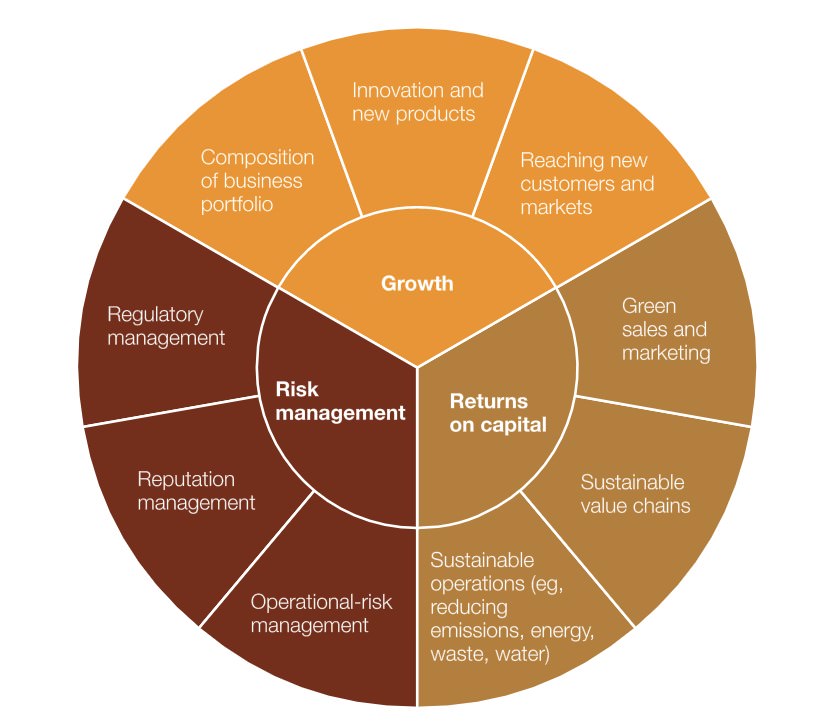In 2015, the United Nations adopted the 2030 Agenda for Sustainable Development and its Seventeen Sustainable Development Goals. There is a growing awareness of sustainability developments and their impacts on people, economy, as well as the environment by consumers, customers, shareholders and governments.
Most of the environmental impact associated with the consumer sector is embedded in supply chains. There is mounting pressure for companies and especially supply chains to take concrete action. The supply chain network that powers international trade and the economy has a significant role to play. According to the Asia Report on “Better Business, Better World”, opportunities in sustainability could contribute US$12 trillion to global GDP and 380 million new jobs by 2030.
Table of Contents
Factors Affecting Sustainability of Supply Chain
To stay competitive, businesses are seeking to unlock value in the vast supply chain on the theme of sustainability. In addition, a report released by non-profit organization CDP has provided evidence that sustainable business outperform other companies on the S&P 5003. Thus, there are many reasons to be sustainable in the supply chain and it may also be used to gain competitive advantage and differentiation in the industry. This article highlights the five critical factors that should be considered when building a sustainable supply chain.
The Executive Sponsorship Factor
The first critical factor is for organizations to build sustainability into their strategy and operational goals. In order to harness the opportunities that sustainability could offer, companies should take a strategic view of sustainability and integrate them into its strategy and operational goals, and then cascade them throughout the organization.
This will ensure that the goals of the organization are in alignment so that all functions, including the supply chain can work towards the same objective and not conflict with each other. This may be done at the executive levels to drive growth, capital and risk management and serves as a universal point to get started.
It is no longer adequate to have a generic CSR (corporate social responsibility) policy in the company such as having power saving features in the plant, using low emission delivery trucks or having your staff volunteer at the local community centre.
By building sustainability drivers onto business goals, the business is able to systematically pursue these opportunities and building the business to support it.

The Procurement Factor
The second critical factor is to examine how organizations organize their procurement activity. Procurement is seen as the beginning of the supply chain, with purchasing of raw materials, equipment and indirect purchases that supports the business.
Many procurement functions also drive the corporate social responsibility goals and requests for suppliers to adhere to a code of conduct covering workplace conditions, diversity and fair wages.
Their requirements drive demand of goods and services and in turn determine the way suppliers run their business. This creates a pull towards providing more sustainable products and services. Another push towards sustainability would be managing the supply chain risks faced by organizations.
Procurement typically manages supply chain disruption by diversifying their suppliers and spreading the risk. By choosing to work with suppliers who are able to meet emission standards, sustainable waste and water management etc. or boycotting supplies from high conflict zones, as there is a reduced risk of supply disruption. These suppliers are less likely to be asked to stop production by the authorities or even being boycotted by customers.
A case in point is Apple. One of its contract manufacturers in China, Foxconn, that manufactures the popular iPhone, was reported to have a high number of employee suicides. Subsequently, the media exposed on low wages and poor working conditions of the factory workers. As a consequence, Apple customers threatened to boycott the iPhone based on their sub-contractor’s actions.
Apple now demands all suppliers to agree and sign a code that mandates all suppliers worldwide to offer fair wages and meet their workplace condition standards. Obviously, this is difficult to achieve for an organization without their large purchasing power and reputation, but such is the power and influence to all their suppliers in the supply chain.
The Transparency Factor
The third critical factor is enhancing transparency of the process in manufacturing and distribution. Customers want to know the sources of their product and if the claims for sustainability are true as stated on the labels.
The full content is only visible to SIPMM members
Already a member? Please Login to continue reading.
References:
http://www.mckinsey.com/business-functions/sustainability-and-resource-productivity/our-insights/starting-at-the-source-sustainability-in-supply-chains
http://businesscommission.org/
https://www.theguardian.com/sustainable-business/2014/sep/23/business-companies-profit-cdp-report-climate-change-sustainability
http://www.mckinsey.com/business-functions/sustainability-and-resource-productivity/our-insights/the-business-of-sustainability-mckinsey-global-survey-results
https://www.provenance.org/
https://energy.gov/savings
http://www.aseanbriefing.com/news/2015/11/09/incentives-for-renewable-energy-investment-in-asean.html
http://www.un.org/sustainabledevelopment/development-agenda/

